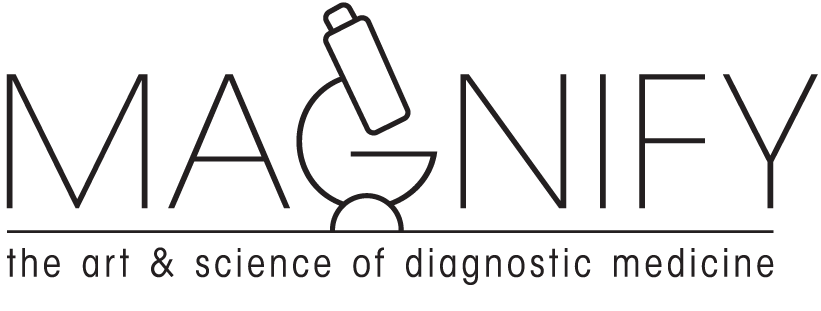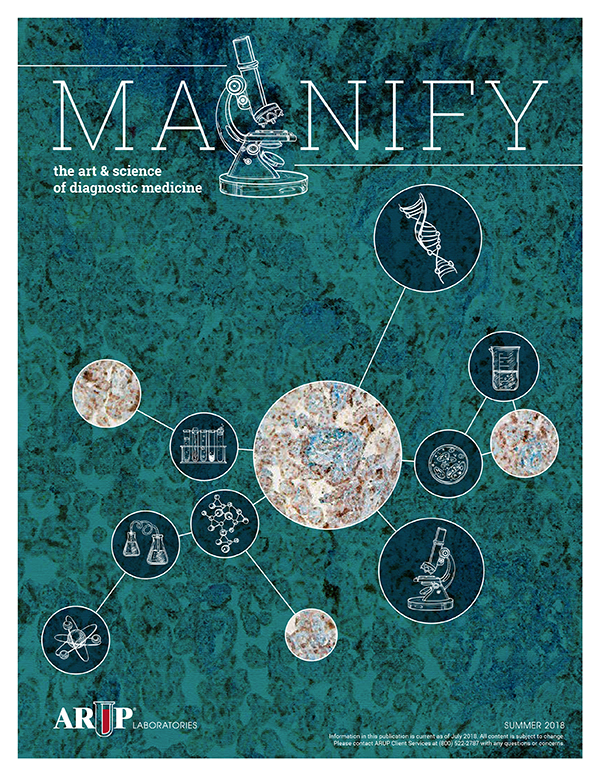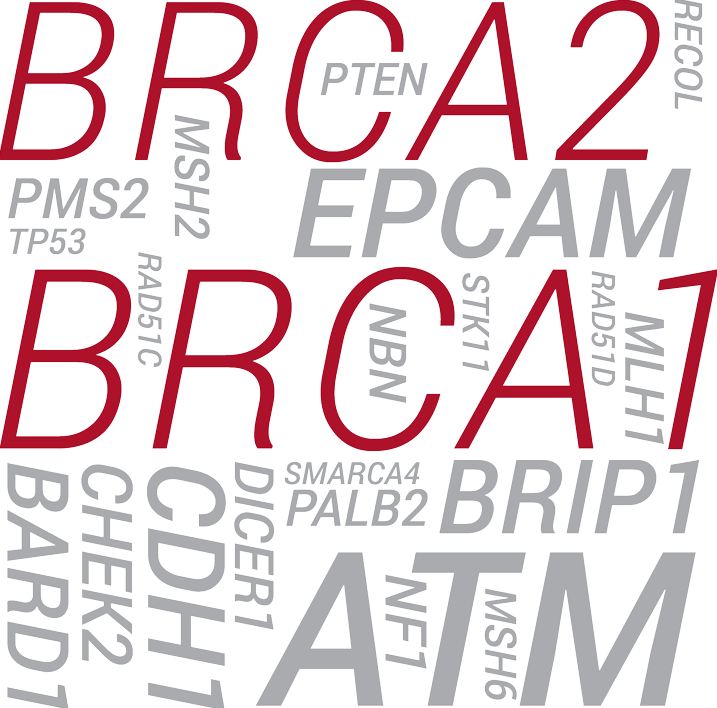Individuals who have inherited pathogenic gene variants may have an increased risk for developing a hereditary cancer syndrome. For these individuals, genetic testing can provide crucial information that would enable early intervention to mitigate their risk. Yet despite the clear benefits, genetic testing remains underutilized.
One barrier that prevents patients from receiving appropriate genetic counseling and testing is a general lack of awareness about which patients meet criteria for testing.
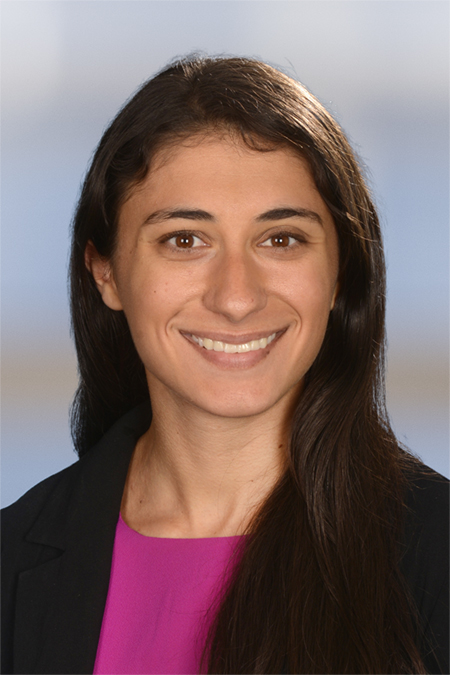
Julie Solimine, MGC, LCGC, a genetic counselor at ARUP, hopes to change that by increasing awareness of the genetic testing criteria. As a clinical genetic counselor in oncology, Solimine spent five years counseling patients about their risk for hereditary cancer while working at a hospital in Baltimore, Maryland.
Solimine said that while criteria vary based on cancer type, guidelines generally recommend inherited cancer testing for individuals who have early-onset cancer or a family history of three or more close relatives who have had the same type of cancer or potentially related cancers.
Identification of specific variants has the potential to improve clinical outcomes through intervention strategies. Patients whose genetics signal increased risk can begin screening early or opt for prophylactic surgery, such as mastectomy. For those with an existing cancer diagnosis, understanding the inherited aspect of their diagnosis can point to treatment approaches that target their specific cancer type.
For example, Solimine said that patients with gene variants that put them at risk for developing hereditary breast cancer might begin having mammograms at a younger age and alternate every six months with a breast magnetic resonance imaging (MRI) scan, which is not a routine form of screening.
“In my experience, the vast majority of patients I counseled did pursue testing, and most of them found it useful in surgical planning or identifying targeted chemotherapies,” Solimine said.
In addition, Solimine often encounters cases in which providers order a single gene test when a larger panel may be more appropriate and provide more information that’s relevant to preventive care.
“Historically, there was a lot of initial research on BRCA1, BRCA2, and Lynch syndrome. Many are familiar with those genes,” Solimine said. “It’s only been in the past 5 to 10 years that we’ve really started offering testing for all of these other variants associated with cancer syndromes.”
Solimine has experienced cases in which ordering a panel rather than a less comprehensive test uncovered an incidental finding.
“These cases stick out in my mind, and I’m so glad I ordered a panel for this patient because otherwise they would never have known about their elevated risk or been able to take proactive measures to minimize risk,” she said.
Solimine and other ARUP genetic counselors offer consultations on appropriate test ordering and results interpretation. They also often help providers interpret results in complex cases.
“Our genetic counselors provide a highly educated, white-glove service,” said Steven Friedman, PhD, group manager of the Sequencing and Clinical Analytics Division. “They are a great resource for clients and clinicians.”
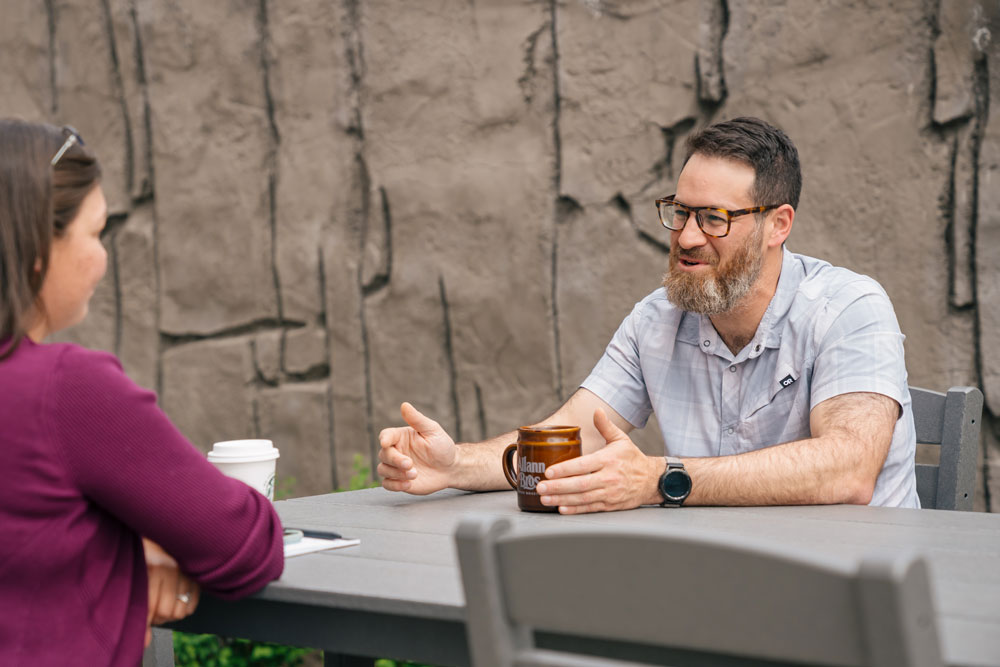
According to the National Cancer Institute, inherited genetic alterations may cause up to 10% of all cancers.
“There’s a misconception that inherited cancer syndromes are rare, when in the scheme of things, they are not,” said Hunter Best, PhD, FACMG, ARUP medical director of Molecular Genetics and Genomics and operations platform director for next generation sequencing (NGS).
Variant Interpretation Driven by Real Intelligence
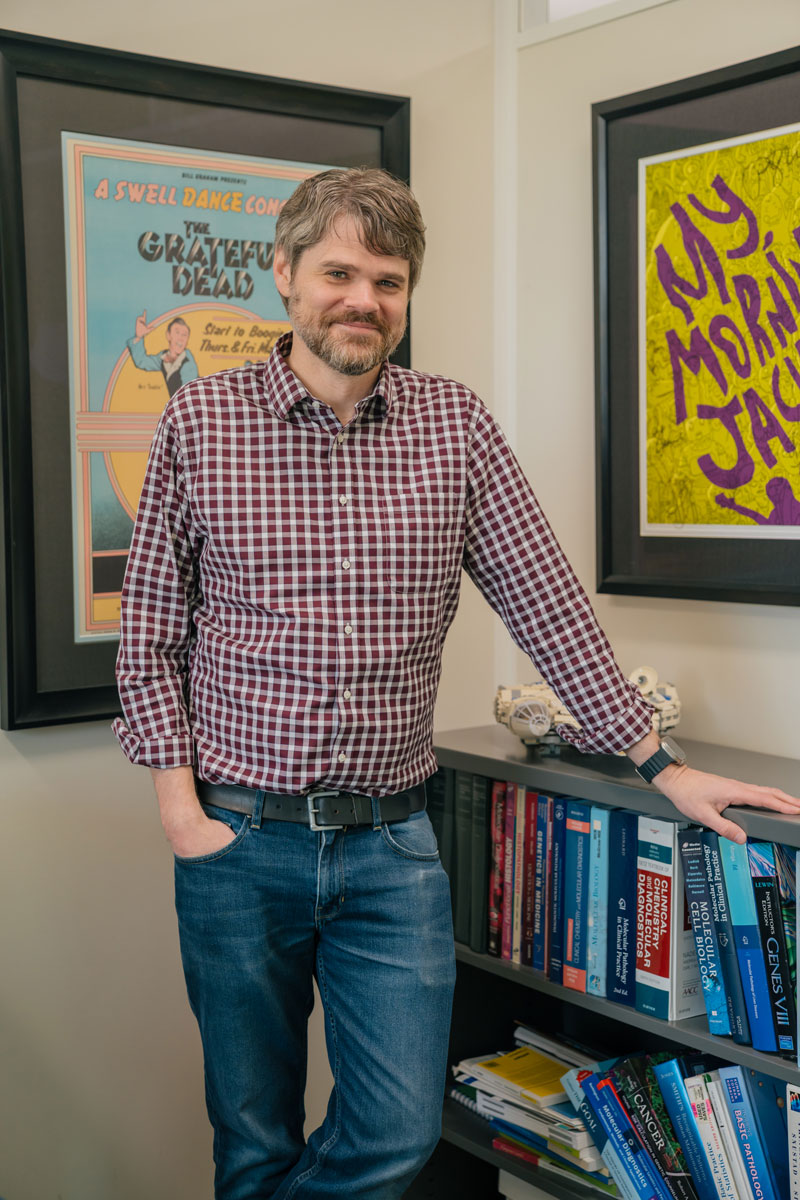
ARUP has been engaged in genetic testing for more than 25 years and has offered clinical NGS testing, also known as massively parallel sequencing, for more than 13 years.
“We were one of the first laboratories to implement clinical NGS testing,” Best said. “You’re not going to find more experience in variant interpretation than we have here at ARUP.”
For every sample that’s sequenced, ARUP’s team of clinical variant scientists (CVSs) analyzes the data to interpret variants and determine whether any are pathogenic. A single sequencing run can produce almost a terabyte of data, so it’s no small task.
“Any given patient will have several hundred variants, and we have to determine which variants are relevant enough to report,” said Kelsey Cone, PhD, a CVS and the supervisor of ARUP’s Genomics Analysis team, which includes CVSs and analysts. “Even though we may only report on a handful of those variants, we still have to go through each one.”
The data analysis is facilitated by NGS.web, a software program that ARUP’s Biocomputing team developed to the specifications of the medical directors and CVSs. NGS.web incorporates data analysis, data from genetics databases, and reporting tools, which makes it a one-stop shop for genetics case review. Since the first iteration of the program more than 10 years ago, the CVS team has been able to increase its caseload by three or four times, said Friedman.
Best and Friedman both emphasized the critical importance of having trained experts provide the final interpretation. As scientists with advanced degrees and extensive genetics training, ARUP’s CVSs are leading experts in variant interpretation. In a field that changes rapidly, these scientists routinely review the literature and guidelines to stay up to date on the latest classifications. Additionally, ARUP medical directors, who are certified by the American Board of Medical Genetics and Genomics (ABMGG), review all reported variants and help tailor each patient report.
“We have highly trained scientists who are immersed in genetic variant interpretation all day, every day,” Friedman said. “Every case is handled, one by one, by a PhD scientist with years of experience.”
Not only do ARUP’s team members provide interpretations for individual patient cases, but they also contribute to the genetics knowledge base. Several members of the team volunteer for ClinGen, a collaborative effort funded by the National Institutes of Health (NIH) to standardize variant classifications. ARUP also contributes to ClinVar, a public database of genetic variants and their clinical relevance. In 2024 alone, ARUP submitted more than 8,000 variants to the ClinVar database.
“We are always willing to talk to anyone who has a question or revisit a classification upon request,” Cone said.

The Genomics Analysis team takes an additional step to ensure patients have all the clinically relevant information. When a variant is reclassified and clinically significant, the CVSs will go back to each patient with that variant and update their reports with the new information.
“I’ve never known ARUP to not do the right thing for the patient,” Best said. “We are most focused on quality to make sure the patient receives a correct and accurate result.”

